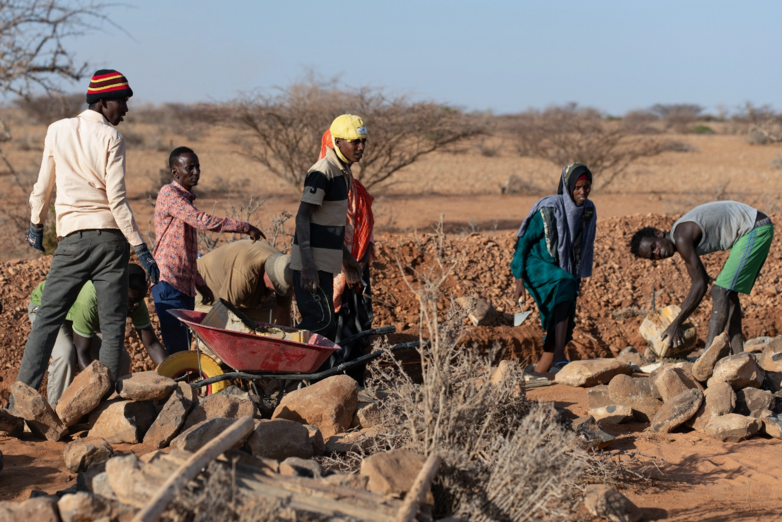Context
In the past, Ethiopia’s Afar regional state had a stable vegetation cover, ensuring food production, income and fuel. The region is getting more and more under pressure due to a population growth of 2.6 per cent per year. Only 7 per cent of the region’s area is viable for agriculture. Failed experiments with new plants and overgrazing have unwittingly introduced invasive plants that thrive on flash flooding, drive back other species and take over large areas of rangeland. Hierarchical clan structures, which traditionally manage communal resources and agro-pastoral irrigation systems, are under increasing stress due to decreasing productivity as the soil degrades and immigration through other pastoral communities increases. Reforestation has been unable to make up for the reduction in tree stocks. Local nurseries do not have the expertise to produce planting material that is adapted to the ecological conditions. Moreover, community members have little or no knowledge about the cultivation and productive management of fruit trees.
Objective
Agro-pastoral communities are able to plant and care for multi-purpose and fruit trees through improved management knowledge and the use of adapted seedlings material.
Approach
The Trilateral Resilience Enhancement in the Ethiopian Lowlands (TREE) project supports the Federal Ministry of Agriculture’s strong interest in expanding tree and shrub production. It is a trilateral partnership between the Governments of Ethiopia, Israel (Israel’s Agency for International Development Cooperation, MASHAV) and Germany, as part of the Strengthening Drought Resilience in Arid and Semi-Arid Lowlands Programme (SDR-ASAL). Project activities are targeting a population of approximately 350,000 people.
The project approach consists of three components:
- Production of multi-purpose and fruit trees in three nurseries,
- Improvement of agro-pastoralists’ knowledge and understanding of planting multi-purpose and fruit trees;
- Training for operators and employees of the nurseries and agricultural extension services in planting multi-purpose and fruit trees
Accordingly, the TREEE project equips two existing tree nurseries to produce multi-purpose and fruit trees. The tree nursery of Gewane Agricultural Technical and Vocational Education and Training College (ATVET) receives support to become a knowledge hub for cultivating fruit and multi-purpose trees. Moreover, the project works to raise awareness and trains community members in planting and caring practices. Measures for water and soil conservation from the SDR-ASAL Programme are also part of the support the project provides.
Nursery staff and agricultural extension services receive training in planting and managing multi-purpose and fruit trees. The project also ensures that this knowledge is established within the partner institutions and shared among extension agents and communities.
In the long-term, the establishment of fruit value chains is envisaged, from which women in particular will benefit.
Results
As of December 2020, the following results were achieved:
- So far, more than 18,000 people have benefited directly from the project.
- Three nurseries for fruit and multi-purpose trees are established and fully equipped. One nursery at Gewane ATVET College was turned into a knowledge hub.
- More than 98.000 seedlings for fruit trees (Orange, Papaya, Mango, Lemon, Banana and Guava) and multi-purpose trees (Moringa, Neem and Delonix) were produced and planted.
- Experience sharing visits were undertaken to raise awareness, knowledge and practice of agro-pastoralist community members towards the planting and caring of fruit trees and multi-purpose trees.
- More than six hectares of fruit orchards are established for producing scion, buds and seeds for enhancing their availability in the region.
- 350 model agro-pastoralists, 108 experts, agricultural extensionists, nursery operators and development agents, and 120 college students of Gewane ATVET College are trained in (i) managing fruit and multi-purpose trees, (ii) managing and protecting vegetables and date palms and (iii) the practices of agricultural development in arid regions. Thereby the project ensures that the new knowledge is kept and shared.
Last update: February 2021
